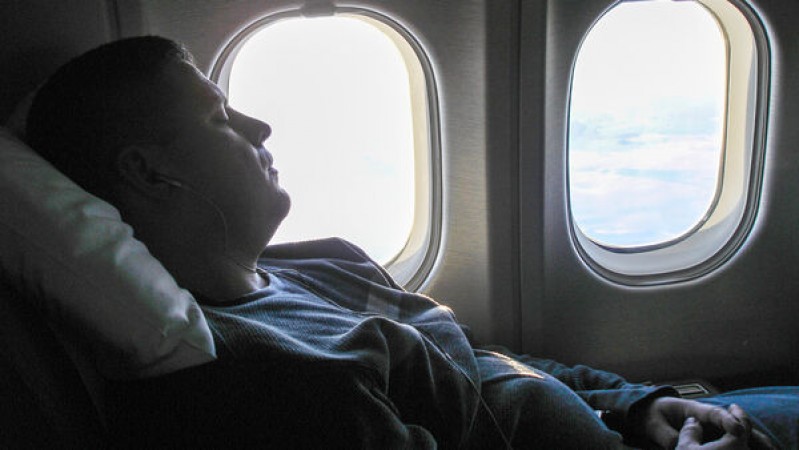
Traveling across time zones can be an exciting adventure, but jet lag can be a real downer. It can throw off your internal clock, leaving you tired and groggy for days. Fear not! With a little planning and some smart strategies, you can minimize jet lag and make the most of your trip.
Jet lag, also known as desynchronosis, occurs when your body's internal clock is out of sync with the new time zone. This disruption affects your sleep patterns, digestion, and overall well-being.
Our bodies follow a natural rhythm called the circadian rhythm. When we travel across time zones, this rhythm is disrupted, leading to symptoms of jet lag. The more time zones you cross, the more severe the jet lag can be.
Start adjusting your schedule a few days before your trip. Gradually shift your sleep and meal times to match your destination's time zone. This can help your body start to adapt even before you leave.
Dehydration can exacerbate jet lag symptoms. Drink plenty of water before, during, and after your flight to keep your body hydrated.
Both alcohol and caffeine can interfere with your sleep patterns and dehydrate you. It's best to avoid these beverages in the days leading up to your flight and during the flight itself.
Whenever possible, choose a flight that arrives in the evening at your destination. This way, you can go to bed shortly after arriving, making it easier to adjust to the new time zone.
As soon as you board the plane, set your watch to the time at your destination. This helps you mentally adjust to the new time zone and plan your sleep accordingly.
If it's nighttime at your destination, try to sleep on the plane. Use an eye mask, earplugs, or noise-canceling headphones to create a restful environment. If it's daytime at your destination, stay awake and try to stay active.
Sitting for long periods can make you feel more sluggish. Get up, stretch, and walk around the cabin every couple of hours to keep your blood flowing and reduce fatigue.
Continue to drink water throughout the flight. The air in airplanes is very dry, which can dehydrate you quickly.
Heavy meals can make you feel more lethargic. Opt for light, healthy snacks and meals that won't weigh you down.
Sunlight is a powerful tool for resetting your internal clock. Spend time outside during the day to help your body adjust to the new time zone.
If you need to nap, keep it short (20-30 minutes) to avoid interfering with your nighttime sleep.
Exercise can help reduce feelings of fatigue and improve your mood. Go for a walk, do some light stretching, or hit the hotel gym.
Try to eat and sleep at the same times every day, according to the local time zone. Consistency helps your body adjust more quickly.
If you're having trouble sleeping, you might consider a mild sleep aid. However, use these sparingly and consult with a doctor before using them.
Melatonin is a hormone that regulates sleep-wake cycles. Taking melatonin supplements can help signal to your body that it's time to sleep. Again, consult with a healthcare provider before use.
Stress can exacerbate jet lag. Practice relaxation techniques such as deep breathing, meditation, or progressive muscle relaxation to help calm your mind and body.
Kids can be especially sensitive to changes in routine. Try to keep their meal and sleep times as consistent as possible with the destination's time zone. Bring comfort items from home, like a favorite blanket or stuffed animal, to help them feel more secure.
For business travelers, arriving well-rested is crucial. Follow all the above tips, and if possible, schedule important meetings for a time when you'll be most alert.
If you travel frequently, your body may adapt more easily to time zone changes. Still, it's important to maintain healthy habits and give yourself time to rest and recover.
Several apps are designed to help minimize jet lag. These apps provide customized schedules for sleep, light exposure, and meal times based on your flight details.
Light therapy boxes can help you adjust to a new time zone by exposing you to bright light at specific times. This can be particularly useful for people who travel often or across multiple time zones.
Many smartwatches and fitness trackers come with features to help monitor and improve your sleep patterns. Use these tools to track your sleep and ensure you're getting enough rest.
Jet lag doesn't have to ruin your trip. By understanding the causes of jet lag and implementing these strategies before, during, and after your flight, you can reduce its impact and enjoy your travels. Remember to stay hydrated, get plenty of sunlight, and stick to a routine to help your body adjust quickly. Safe travels!
Wearing sandals also leaves marks on your feet, so follow these tricks
When was the saree worn for the first time, how did it become a part of Indian culture?